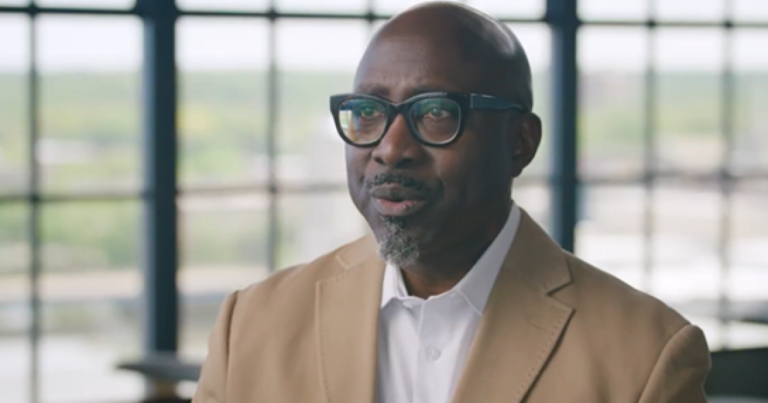A health education video featuring several Black faith leaders from Rockford was recently released. WNIJ’s Yvonne Boose spoke with some of the key players to find out what steps are being taken beyond the screen.
Rockford ready is run by the city Department of Health and Human Services. The group’s goal is to help improve the health of all residents. They do this by making sure everyone is aware of their health options. Being health literate means you have access to health information that allows you to make personal health decisions. A few years ago, the group launched an initiative focused on the health of underserved individuals in the community. Trust was one of the determining factors, which is why black clergy were chosen to deliver the message in this year’s video.
Anqunette Parham is Executive Director of Health and Human Services for the City of Rockford and manager of the Rockford Ready Project. She said these black pastors were already spreading the message of health literacy.
“Some of them were serving as testing sites or vaccination sites during the pandemic,” she explained, “or they had active church health ministries. And they had made other efforts and taken other steps to really help address the topic of health.
Parham said a survey was done before creating the video and it showed pastors were the primary leaders trusted by the black community.
Becky Kendall is the executive director of the Rockford Regional Health Council. She is also part of the working group for this Rockford Ready initiative. She said the Black community is comfortable asking questions of pastors and should be just as safe asking questions when it comes to their health care providers.
“We need to help people trust. Yes, there were circumstances, but let’s throw some of it away,” she said, “Put it in the sea of oblivion, as one of my deacons said in my church . Put that in the sea of forgiveness. Listen, communicate with others.
K. Edward Copeland is the pastor of New Zion Baptist Church. He says he sees a lot of morbidity in his congregation.
“So if you come to our church every Sunday, you can ask any church member,” he said, “every Sunday, apart from memorized scriptures, all these kinds of things, people should repeat after me, our motto, “Eat your colors, drink more water, move your body then put your big head down.”
Copeland said that in addition to that, the church has a community garden and when the congregation gathers for church meals, healthy foods are served.
“Twice a year we have a 40-day Daniel Fast with no meat, no sweets or soft drinks,” he said. “So it’s kind of creating a culture that this is what we do here, that we eat healthy and that we hold each other accountable.”
Copeland said his congregation holds each other accountable and makes sure they are checking on each other. He also said the mentality of some African Americans needs to change.
“We can make certain lifestyle choices that can have a huge impact on these things,” he said. “But to the extent that we face problems that exceed our ability to control diet, exercise and rest, we must be our own best advocates.”
Shelton Kay is the former vice president of community relations at Crusader Community Health. He said he’s dealt with many people who feel ill-equipped to start a conversation with their health care providers.
“And they make health care secondary, you know,” Kay said, “and again, if you’re not comfortable doing something with yourself, you’re going to avoid it.”
He said pastors are the ideal vehicle to convey this message to the community.
“Years ago, I did a project where, you know, when the HIV program was starting, and it was a problem in the African American community,” Kay said. “I reached out to different pastors in the black community to get this. Message about HIV. And they adopted it. They worked together, we formed a coalition.
CURA Strategies is an organization that provides communications support for the city’s health literacy initiative. A company representative said the video is the product the public sees, but other things happen behind the scenes.
They recently held their eighth health literacy training for community organizations. These training courses were previously intended for clinicians. Petros said the organization reaches health care providers and service providers.
Kendall said it’s important for people to make connections when attending health-related events. She said it could increase their knowledge and better equip them to advocate for themselves in health care environments.
“You don’t have to do it all the time,” she added, “but just from time to time. Those of us who are ambassadors or advocates also need to spend our time preach the word. Because all the knowledge we give is power.
THE video can be found on the Rockford Ready YouTube page. Additional resources are available at rockfordready.org.
